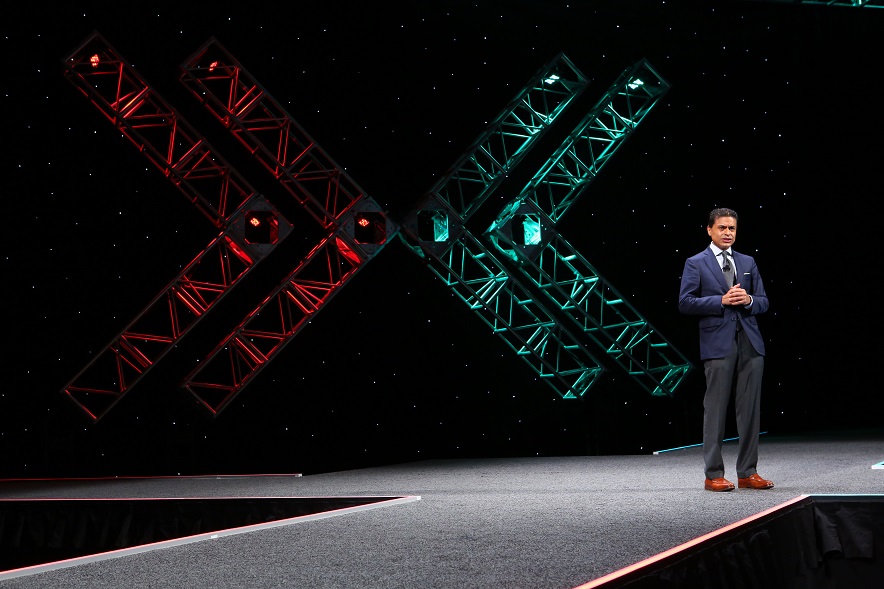Zakaria Touches on Turmoil
If we're living in one of the most peaceful times in recorded history, why do things seem so grim? That's the question Fareed Zakaria, global thinker, columnist, and CNN host, discussed with attendees during Monday's opening session.
Despite the "circus" in Washington, D.C., he said, countries around the world are benefitting from a truly global economy, an information and technology revolution, and a large increase in the number of countries successfully navigating the global economic system.
"When I describe this world, it sounds very benign—these are all good forces," Zakaria said. "So, what's the problem? Why all the turmoil and anxiety, pessimism?"
Those same forces that have created a time of relative stability also have the potential to radically change the future. Developing countries benefitted disproportionately from the wave of globalization, and while the United States had robust growth, it was not spread equally.
"There was a large swath of the working class, people who worked in factories, who faced extraordinary headwinds of competition that came from these countries," Zakaria explained. "If you're a steelworker, that force of globalization puts pressure on your wages because someone somewhere else can produce that thing for a lot less than you."
Technology plays a role in this pressure, too. As the reality of autonomous vehicles inches ever closer—bringing with it the potential to save the 1.5 million lives that are ended by driver error worldwide each year—Zakaria cautioned what it could mean for the 3 million Americans that drive a car, bus, or truck for a living.
"It's the single most widely held occupation for an American without a college degree," he noted. "What happens to those people? Those are the pressures starting to develop, and that's why you see that economic anxiety that is fueling the populist movement."
Cyberattacks as warfare are an ever-growing threat—just look to Russia's digital meddling in the 2016 U.S. election.
Zakaria pointed out that two years ago, only Russia and China had the capacity to carry out such large and successful cyber campaigns. But today, he estimates that some 30 countries have those same cyber capabilities.
He compared the handling of cyberattacks to nuclear warfare—after Hiroshima, the major powers developed arms control to stabilize the world and prevent nuclear war. However, the global cyberspace is still a long way from agreeing to such controls on cyberwarfare.
"We are in a very new world. The three forces that have been propelling us to a cruise control that allowed us to think of the world as peaceful and moving in one direction are changing," Zakaria concluded.
"In the short term I'm optimistic," he said. "But in the long term how we manage these trends determines whether we leave our children a world as peaceful and prosperous, while preserving American liberty and democracy."
